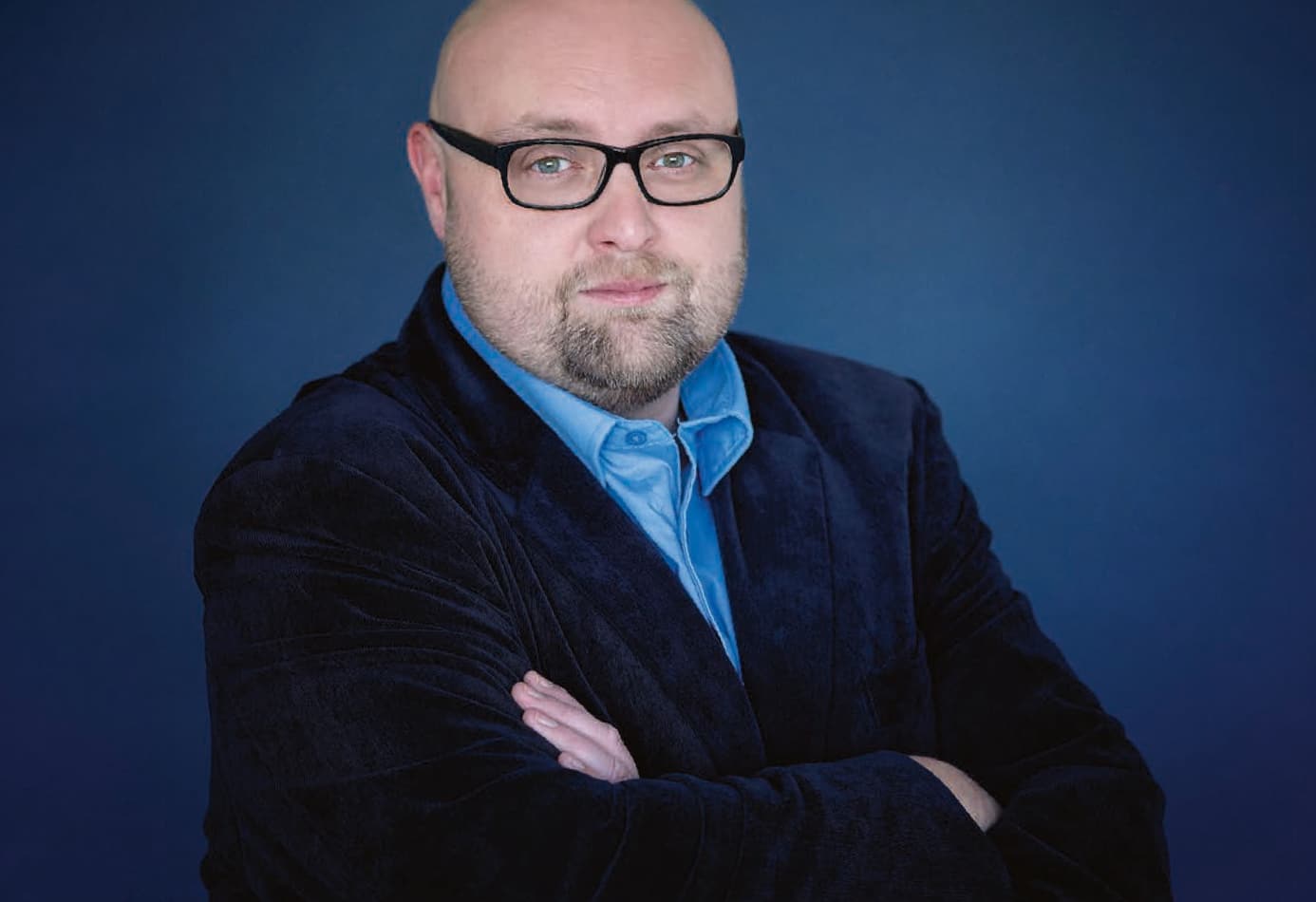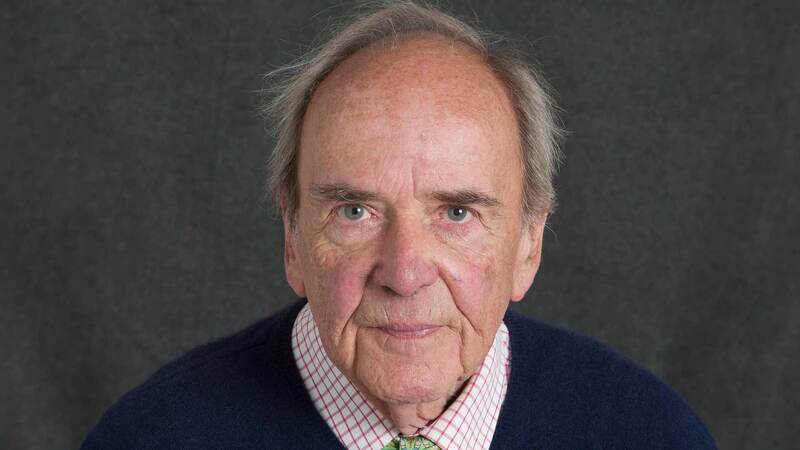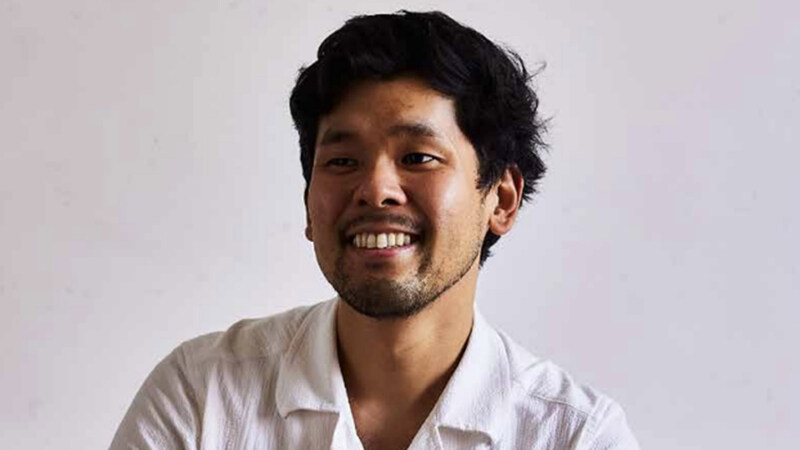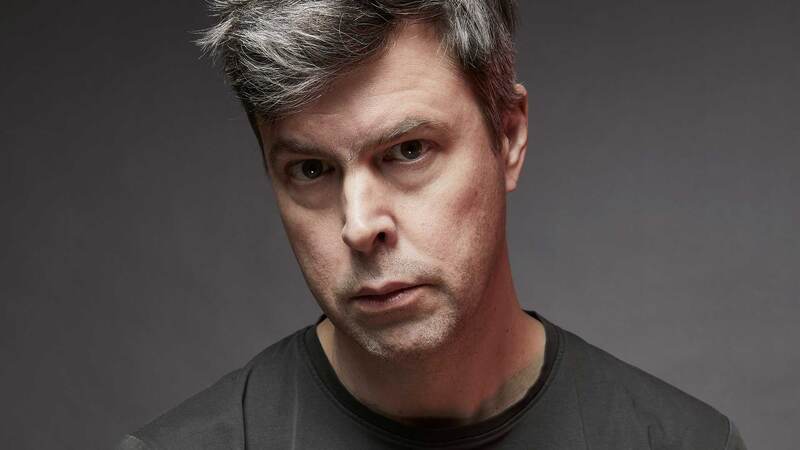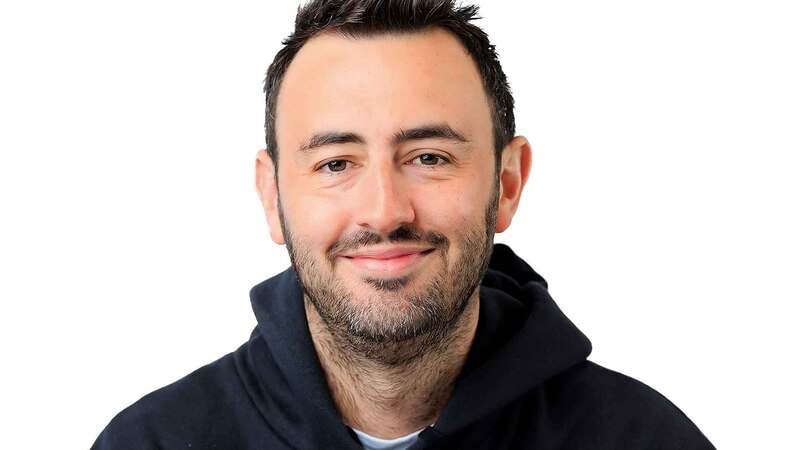You are viewing your 1 free article this month. Login to read more articles.
Steve Cavanagh | 'It’s scary going to writing full-time, but it’s also brilliant'
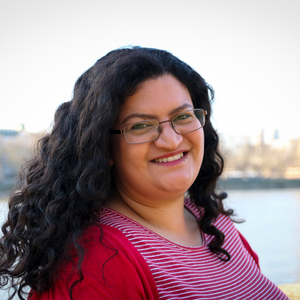 Caroline Carpenter
Caroline CarpenterCaroline is deputy features editor at The Bookseller and chair of the YA Book Prize, as well as being a co-host of children's book radio ...more
Steve Cavanagh’s career as a thriller writer looked to have stalled, despite critical acclaim—until Thirteen proved to be very lucky indeed...

Caroline is deputy features editor at The Bookseller and chair of the YA Book Prize, as well as being a co-host of children's book radio ...more
Belfast-born and raised Steve Cavanagh’s career is an excellent case study of why publishers should think about the long game with talented authors. Cavanagh’s first legal thriller featuring conman-turned-lawyer Eddie Flynn, The Defence (Orion), was published in 2015, and it is fair to say it did not trouble the charts. “We sold 751 copies of the paperback that first year,” Cavanagh laughs.
His subsequent novels in the series struggled to find much of an audience in the UK and Ireland, despite heaps of praise from critics and crime-writing colleagues, and international recognition. The series sold well in France from the off and the second title, The Plea (published as Une Coupable Idéal by Bragellonne) won the Prix Polar for Best International Novel in 2017.
Then came 2018’s Thirteen, in which Flynn becomes involved in the knotty case of a movie star, up for the slaying of his lover and co-star. But the real murderer, a serial killer, may be on the jury. Cavanagh says: “I thought I had to change things up. I had the idea for Thirteen before I had finished The Defence, but I didn’t think I was a good enough writer to do it yet, so I put it in the drawer.”
I was writing from 10 p.m. to one a.m., then getting up at six to get the kids ready for school. It was a real struggle. It’s a wee bit scary going to writing full-time, but it’s also brilliant to get up in the morning and do what you really want to do
It also helped that for Thirteen he had a new editor, coming to the series with fresh eyes, Francesca Pathak (who was recently promoted to Orion Fiction publishing director and named a Bookseller Rising Star). Cavanagh stresses that his previous editor, Jon Wood, was a huge help in initially developing Thirteen, but when it was time to deliver the book to Pathak, he felt he had a hit. Cavanagh says: “I sent in a bound manuscript with 13 dollar bills, folded in the shape of butterflies. I wanted her to think, before she had read it: ‘OK, this is something different.’ My agent Euan [Thorneycroft, of A M Heath] had warned her, ‘He’s not a lunatic, he’s doing this for a reason.’ I wanted Orion to think it was something special.”
Helped by a new livery and a sharp marketing, Thirteen shifted around 200,000 units in print and e-book over the course of 2018. It was a banner year, as Cavanagh also won the Crime Writers’ Association Gold Dagger for his previous book, The Liar. It was unexpected: “There were people like Dennis Lehane, Attica Locke and Mick Herron in that category, so I thought I had no chance. I was just happy to make up the numbers. I was flabbergasted when I won.”
The Eddie Flynn books have the air of authenticity because, until recently, Cavanagh was a lawyer himself—though, he didn’t really set out to become one. He went to college in Dublin with the idea of doing a business course. The evening before registration, he and his mates had a grand old time; hung over the next day, he signed up for the law course, which he didn’t realise until he tried to attend the business classes. He shrugs: “I sort of had it in the back of my head to do law, so I thought I might as well do it.”

He did not immediately go into law, taking a few odd jobs after university while trying to make it as a screenwriter. He had an agent, but never sold anything: “The highlight was the rejection from Francis Ford Coppola’s company for a script which they said wasn’t Irish enough.” So, he got a job at a Belfast law firm as an investigator, working his way up to a solicitor. A big part of his work was in civil rights; in the early 2010s, he represented an immigrant factory worker who was discriminated against in the workplace and won the highest-ever damages in a case of its kind in Northern Ireland. Returning to writing had always been in the back of his mind, and he did so after his mother’s death in 2011. He says: “It was my long-interrupted ambition. My mum had been the one who had always encouraged me to write and when she died I thought, life’s too short, so I gave it another go.” To honour his mother, he uses her maiden name Cavanagh as his nom de plume (and to separate his law work, which he practised under his given name, Stephen Mearns).
Though his experience is in British and Irish courts, his Eddie Flynn books are set in New York. He explains: “I was looking at Lee Child and John Connolly, who have set their books over in the US, and thought maybe I could, too. Also, there are practical reasons: with our system, you would have to introduce two main characters. Plus, if you set it in the UK, you would have a main character wearing a wig and a gown... which takes a lot of the suspense and tension out.”
Is the fact that Flynn is an ex-conman making a larger comment on lawyers? He laughs: “There can be a lot of bullshitters. But it was more that, in legal thrillers—especially those set in America—you get a lot of noble Atticus Finch types: all very honourable people in fancy offices fighting for the rights of ordinary folk. Which I just don’t think is accurate. The law is an honourable profession, but it’s a dishonourable system. The justice system doesn’t really work—sometimes it does despite itself—and nobody really talks about that.”
Branching out
This year’s follow-up to Thirteen was Cavanagh’s first standalone, Twisted, in which a hugely successful anonymous crime writer (who pens twisty thrillers) may, or may not be, a serial killer. He went away from the Eddie Flynns, partially because of a lesson from his hero Michael Connelly: “For book four or five, he did a standalone, which really helped him write his Harry Bosch books. He expanded and learned as a writer. With Twisted I was trying to challenge myself, as I didn’t know if I could write a book that wasn’t set in a courtroom.”
He returns to Flynn in Fifty/Fifty, which he is currently putting the finishing touches to. Again, it is deliciously high-concept: the police receive a 911 call from Alexandra, who says her father has just been murdered by her sister Sophia, who is still in the house. At the same time, a 911 call comes in from Sophia, who says Alexandra is the murderer. Both women are put on trial, with Flynn representing one of the sisters. But is his client really the killer?
As of a month ago, Cavanagh has turned his full attention to writing, having chucked the day job. This is partially because of the success of Twisted and Thirteen, but also because of time constraints. He says: “The last book was a real struggle, not because of the book but because I was so tired. My wife and I have two young kids; being a lawyer is not a nine-to-five job. I was writing from 10 p.m. to one a.m., then getting up at six to get the kids ready for school. It was a real struggle. It’s a wee bit scary going to writing full-time, but it’s also brilliant to get up in the morning and do what you really want to do.”
This was written as part of The Bookseller’s focus on publishing in Ireland; for more content from this focus, head here.





